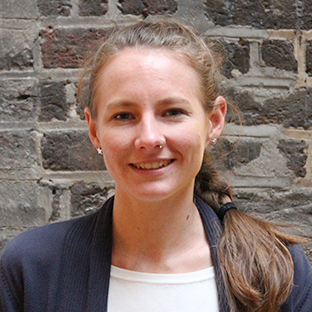In national elections, the environment rarely makes the list of top voter concerns. However, evidence from around the world shows that communities with greater direct control over their resources will make more sustainable choices in how to manage them.
It appears that most voters aren’t interested in sustainability. This leads some environmental campaigners to lose hope in democratic mechanisms, which they feel to slow to address impending consequences of climate change. The solution may lie in more democracy, not less, because where we find communities with high levels of social sustainability we also find a deeper respect for the natural world.
When we talk about sustainability we often mention things such as renewable energy, the circular economy, or designating special conservation areas in order to protect our environment. The relationship between economic sustainability and environmental sustainability also seems to be readily recognised, albeit usually framed as contradictory forces. I want to highlight another aspect of sustainability that doesn’t get as much airtime - social sustainability – encompassing ideas of equity and collective action for the common good.
Social sustainability means equitable access, across present day society and into the future, to ecological, socio-economic, cultural and political goods. Neighbourhood parks, clean water or healthcare and job opportunities, as well as freedoms to religious practice or public protest are some of these fundamentals. Social sustainability demands democratic processes so that all citizens’ needs and wants are represented, resulting in a greater likelihood that decisions made will serve the public good and be adopted by greater society.
This kind of thinking informs our Citizens’ Economic Council programme. This programme is testing the hypothesis that if people are brought together to talk about economic issues, they will better understand the interests of wider society, and consequently be more likely to support decisions that go beyond their own personal interests to benefit a broader group of people.
Much of mainstream society and in particular minority groups, are often excluded from decision-making processes. Regardless, by showcasing the wonderful socio-economic and environmental outcomes of a few inspiring citizen led initiatives, I am making the case that you should place your trust in people and open up public decision-making processes.
Bolivia
First I take you to Bolivia where in 2000, when water prices rocketed up by 200% under private management, Bolivian people took to the streets in the famous ‘Cochabamba Water Wars’ to protest what they believed to be a denial of their basic human rights. They successfully brought the water supply back into public control, and more recently in Bolivia’s new constitution (written in 2009), water was recognised as a human right. In 2010 Bolivia was the second country worldwide to recognise that nature has rights, including rights to life, biodiversity and regeneration, and has presented the declaration to the United Nations for adoption. These activities were primarily driven by indigenous groups and farmer communities with the intention to prevent further unfair exploitation of Bolivia’s people and natural resources.
Scotland
In Scotland rural communities are uniting to buy land together and place it under their own management. Communities and crofting communities (farmers) were given rights to buy land under the Scottish Land Reform Act 2003, and were strengthened under the Community Empowerment Act 2015. In 2016 there is £10 million grant funding available from the Scottish government to help communities purchase land on condition that the land will be used for sustainable economic, environmental and/or social development. Community Land Scotland, an organisation established to represent community land owners across Scotland, did a study in 2014 to investigate what kind of outcomes community land ownership was producing. They found communities had invested in upgrading and building new housing, renewable energy projects, and local infrastructure. Consequently, empowering local people by creating new jobs and training community members to play an active role in land management.
London
London food growing groups are trying to make a difference in their local areas too. Members of these groups come from all over society, linking students to locals, the elderly to the young, and refugees to an alternative sense of home. Many operate under permaculture principles – working with Mother Nature to create balanced and sustainable ecosystems – and provide skills and training to their members, raising awareness of environmental issues and the importance of facing them in solidarity with others.
To me it’s clear that citizen-led initiatives can create sustainable socio-economic and environmental outcomes, and I hope I’ve persuaded you that great things can be done when people chose to work together. These examples provide two lessons for our leaders who’ve been at COP22 over the last week. First, how to work together collaboratively for the greater good, and second, don’t neglect the importance of genuine citizen participation in achieving a more sustainable world.
Look out for more blogs on sustainability in the not too distant future!
Find out more about the Citizens' Economic Council
Follow the Citizens' Economic Council and join our conversation @citizenseconomy

Be the first to write a comment
Comments
Please login to post a comment or reply
Don't have an account? Click here to register.